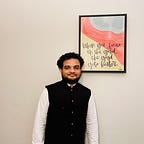Can A.I. be Conscious?
For the past couple of months, my mind has been constantly debating whether A.I. should stand for Artificial Intelligence or Alternative Intelligence. Many will think it is of no value to debate this, as the dictionary meaning of “artificial” is a human-made copy of something natural, and A.I. fits that definition like a glove.
Before I can explain why it’s time to change it from Artificial Intelligence to Alternate Intelligence, let’s step back and discuss one of the important aspects of life: consciousness. I believe it is important to understand the different viewpoints on one of the most crucial concepts of existence.
Whenever I spend time in self-reflection, I often find myself at the crossroads of philosophy, spirituality, and science. Consciousness is a common theme explored throughout history by philosophers, scientists, and spiritual guides, with some areas of agreement but distinct boundaries.
Neuroscience has a very narrow view and human centrist definition.
“Consciousness” is the function of the human mind that receives and processes information..
Dr. Anil Seth is a leading figure in the field of cognitive and computational neuroscience, exploring various aspects and theories related to consciousness. While, other neuroscience may not, but, I always sensed Dr. Seth’s possible influence from the eastern philosophy might have shaped his scientific work and views.
Science itself is a broad subject. While Neuroscience has a very narrow meaning of consciousnesses revolving around the functioning of brains and neurons, the physicist would go beyond the human body, delving into the realms of space and time. Prof. Donald Hoffman’s view sees it through Space and Time and it is closely related to the Vedic Philosophy that infinite consciousness perceives the virtual reality through localized experiences.
Physical objects, such as quarks and brains and stars, are constructed by conscious agents, but such physical objects have no causal powers. — Multimodal User Interface Theory
Theoretical physicists, few of them have argued that the conventional physics won’t be able to solve the consciousness. However, the recent development in quantum physics is keeping experimental physicists on their toes.
I regard consciousness as fundamental. I regard matter is derivative from consciousness. We cannot get behind consciousness. Everything that we talk about, everything that we regard as existing, postulates consciousness — Max Planck
There had been critical views on who tried to connect these two complex concepts.
Many western philosophers, like neuroscientist has taken human centrist approach to define the consciousness.
To be conscious that we are perceiving or thinking is to be conscious of our own existence — Aristotle
Quantum Entanglement has breathed new life into the notion that the ‘Universe is not locally real,’ a theory that echoes the ancient wisdom of the Vedic philosophers, particularly the Advaita (non-dual) School of thought. This concept stands in stark contrast to the Simulation Hypothesis.
I am not mind, nor intellect, nor ego, nor the reflections of inner self. I am not the five senses. I am beyond that.
I am not the seven elements or the five sheaths. I am indeed, that eternal knowing and bliss, the auspicious, pure consciousness. — Adi Shankara
Aeons before Adi Shankara, the sages of the Vedas delved into this profound concept. They proclaimed that the true self is naught but infinite pure consciousness, and we are ensnared in the illusion that severs the self from nature’s embrace. It seems they embraced this philosophy wholeheartedly, without seeking to appropriate their work in any guise. Many of these concepts are as intricate as the mysteries of quantum mechanics. However, philosophers and teachers like Rupert Spira, akin to the luminaries of old, shed light upon these complexities through metaphors as simple as a mirror reflecting the world around it. He believes that science may never fully comprehend what consciousness is and elucidates the reasons why.
In the region where I spent my early days, Vedic literature is predominant. The literature has a harmonious blend of philosophy and spirituality. This might be true in many cultures and traditions. As Rupert Spira eloquently responds to a cognitive scientist, the true science of consciousness lies not in external observation but in self-inquiry, like a wave exploring the depths of the very ocean from which it arose. This metaphor resonates with the ancient Chinese philosophical text, the Tao Te Ching, which speaks of the interconnections of all things and the importance of looking within to understand the nature of existence.
In the realm of spirituality, the infinite and pure consciousness is symbolized by the divine form of Lord Vishnu, slumbering and dreaming upon the cosmic ocean.
The individuals are but fleeting characters and occurrences within this dream, much like the transient nature of existence portrayed in plays. The Vedas posit that self-inquiry is the path to realizing that we are not merely what we perceive, but rather the one infinite and pure consciousness that currently dreams this grand illusion, reminiscent of the philosophical musings in Plato’s “Allegory of the Cave.”
Can A.I. be conscious?
It depends on which theory of reality is the basis and how we define the consciousness.
According to the non-dualism, artificial intelligence or machines cannot be truly conscious. This is because, in their view, the physical world we perceive, including human bodies and machines, is merely an illusion. What truly exists is the infinite consciousness, like a vast ocean, and we are all but waves upon its surface.
If we trust that brain function (matter) produces the ‘consciousness’, then why machine can’t be conscious? Ultimately, it is an experience?
I propose to consider the question, ‘Can machines think?’ — Alan Turing
The debate between these two perspectives is like a game of chess, where each side moves its pieces with careful strategy, trying to checkmate the other. But in the end, perhaps the true wisdom lies in recognizing that both perspectives are merely different paths leading to the same ultimate truth — the infinite consciousness that underlies all existence.
